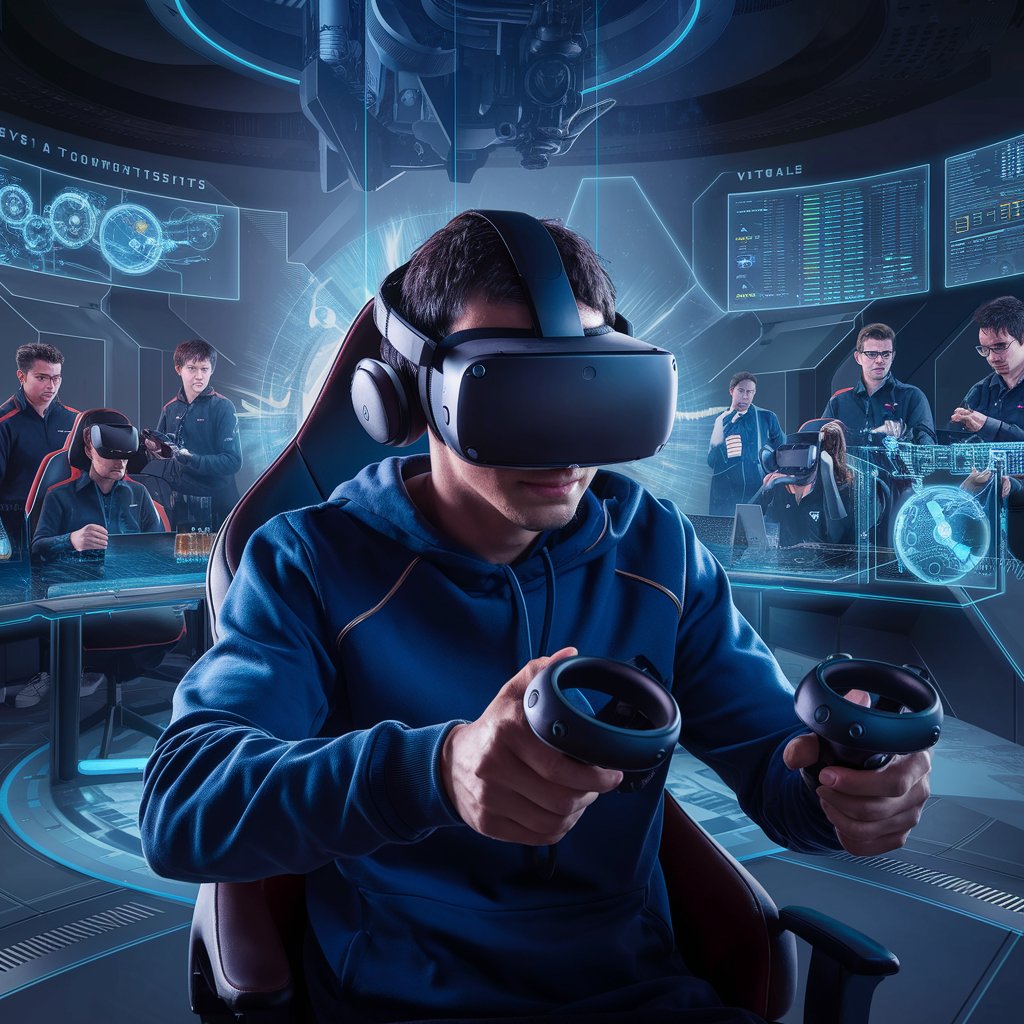Virtual reality (VR) has emerged as a groundbreaking tool for training and strategy development in competitive gaming, offering a host of benefits that traditional methods cannot match. By immersing players in realistic virtual environments, VR provides an unparalleled opportunity to enhance skills, refine strategies, and prepare for high-stakes competition.
One of the primary advantages of VR in training is its ability to create highly immersive and interactive scenarios. Unlike conventional training tools, VR places players directly into the game’s environment, allowing them to practice and adapt to real-world situations. This level of immersion helps players develop a deeper understanding of game mechanics and improves their spatial awareness. For instance, in strategy games or first-person shooters, VR enables players to explore and interact with the virtual world as if they were physically present, enhancing their ability to strategize and make quick decisions based on their surroundings.
Moreover, VR training offers a dynamic and versatile approach to skill development. Gamers can engage in realistic simulations that replicate various in-game scenarios, from intense combat situations to complex puzzle-solving tasks. This adaptability allows players to focus on specific areas of improvement and experiment with different strategies in a controlled setting. The ability to repeatedly practice and test strategies without the constraints of a live game environment accelerates skill acquisition and boosts overall performance.
In addition to individual skill enhancement, VR facilitates effective team training and coordination. Competitive games often require precise teamwork and communication, which can be challenging to practice in traditional setups. VR provides a collaborative space where teams can train together, practice their strategies, and refine their coordination. By interacting in a shared virtual environment, team members can develop better communication and teamwork skills, essential for success in high-level competitions. This virtual collaboration mirrors real-world scenarios, allowing teams to address potential issues and optimize their strategies.
Another significant benefit of VR for strategy development is the ability to analyze and review gameplay from multiple perspectives. VR platforms often include tools for recording and replaying sessions, enabling players and coaches to review their performance in detail. By examining their actions and decisions in a virtual setting, players can identify areas for improvement and adjust their strategies accordingly. This level of analysis provides valuable insights into gameplay patterns and helps players make data-driven decisions to enhance their competitive edge.
Furthermore, VR training can be tailored to accommodate different skill levels and learning styles. Whether a player is a novice or an experienced competitor, VR offers customizable training modules that cater to individual needs. This personalized approach ensures that players receive targeted feedback and practice opportunities that align with their specific goals and challenges.
Overall, the integration of VR into training and strategy development represents a significant advancement in competitive gaming. By offering immersive simulations, enhancing team coordination, and providing detailed performance analysis, VR equips players with the tools they need to excel in their competitive endeavors. As technology continues to evolve, the role of VR in shaping the future of competitive gaming will likely become even more influential, paving the way for new and innovative approaches to training and strategy.

